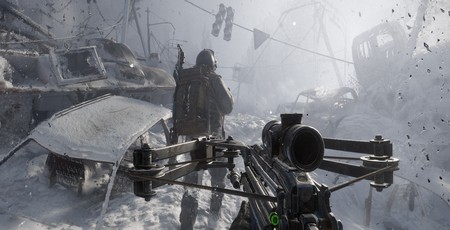
Price: £44.99
Developer: 4A Games
Publisher: Deep Silver
Platform: PC, PS4, Xbox One
Version Reviewed: PC
In the icy wetlands surrounding the river Volga, I cautiously approach the bandit camp. My main objective lies in the nearby abandoned train depot, but I’ve been told the bandits have taken prisoners, and I fancy setting them free. I’m pretty well-equipped thanks to painstakingly scavenging the local area, but in post-apocalyptic Russia it’s a good idea to save whatever you can, so I want to do this quietly.
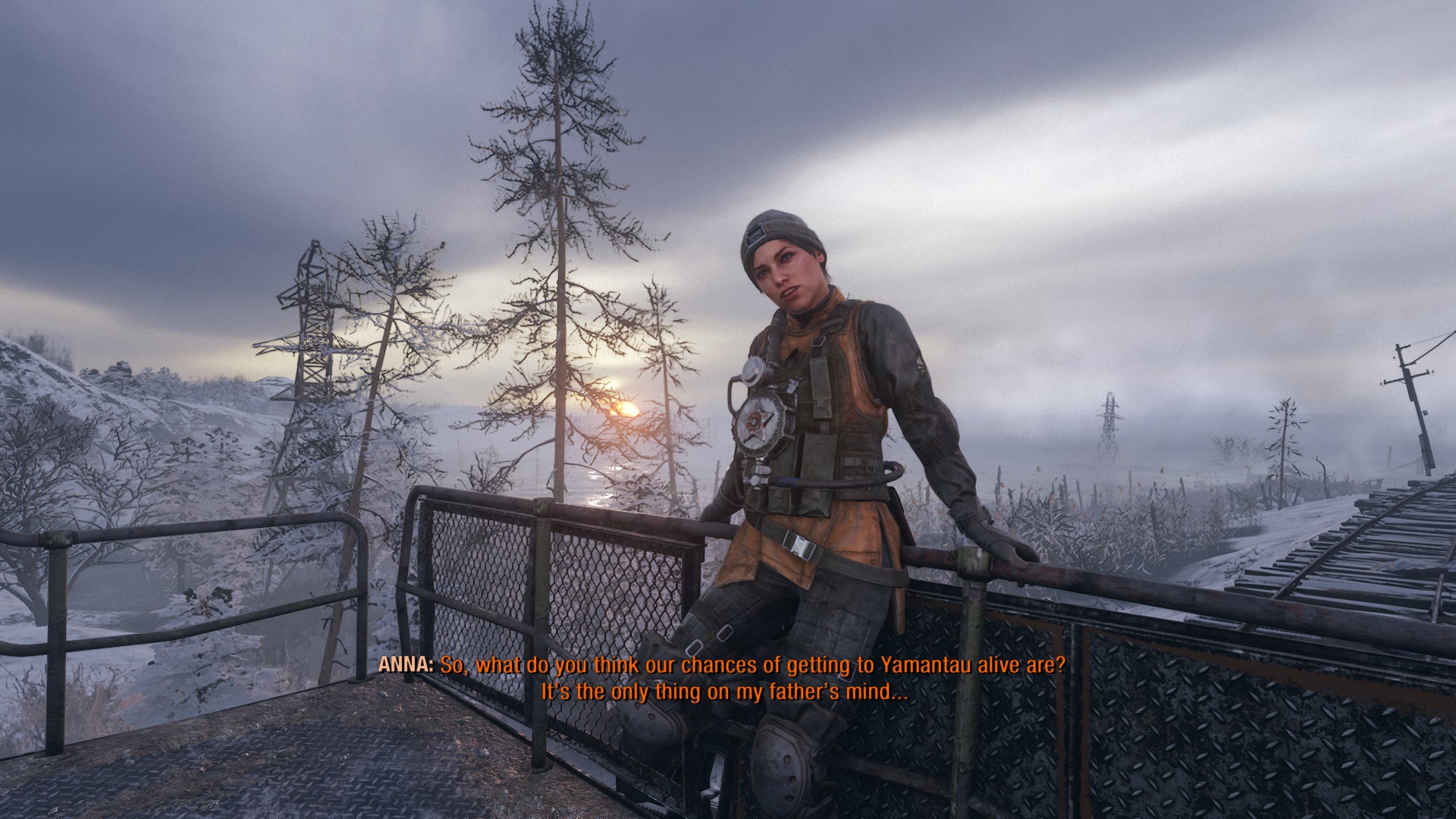
The bandits are holed up in some kind of barn. The door is locked, but there’s an outdoor staircase that leads inside to an upper mezzanine. Perhaps a half-dozen bandits loiter downstairs, but only one is patrolling the mezzanine. It’s a perfect ambush spot if I can take out the guard without alerting the others.
I approach slowly, planning to knock him out, but as I’m about to turn the corner, the building groans as the entire floor gives way beneath me. Cries of alarm go up among the bandits, and I end up in a ferocious gunfight, taking potshots from behind a wooden support beam as bullets spray from multiple directions.
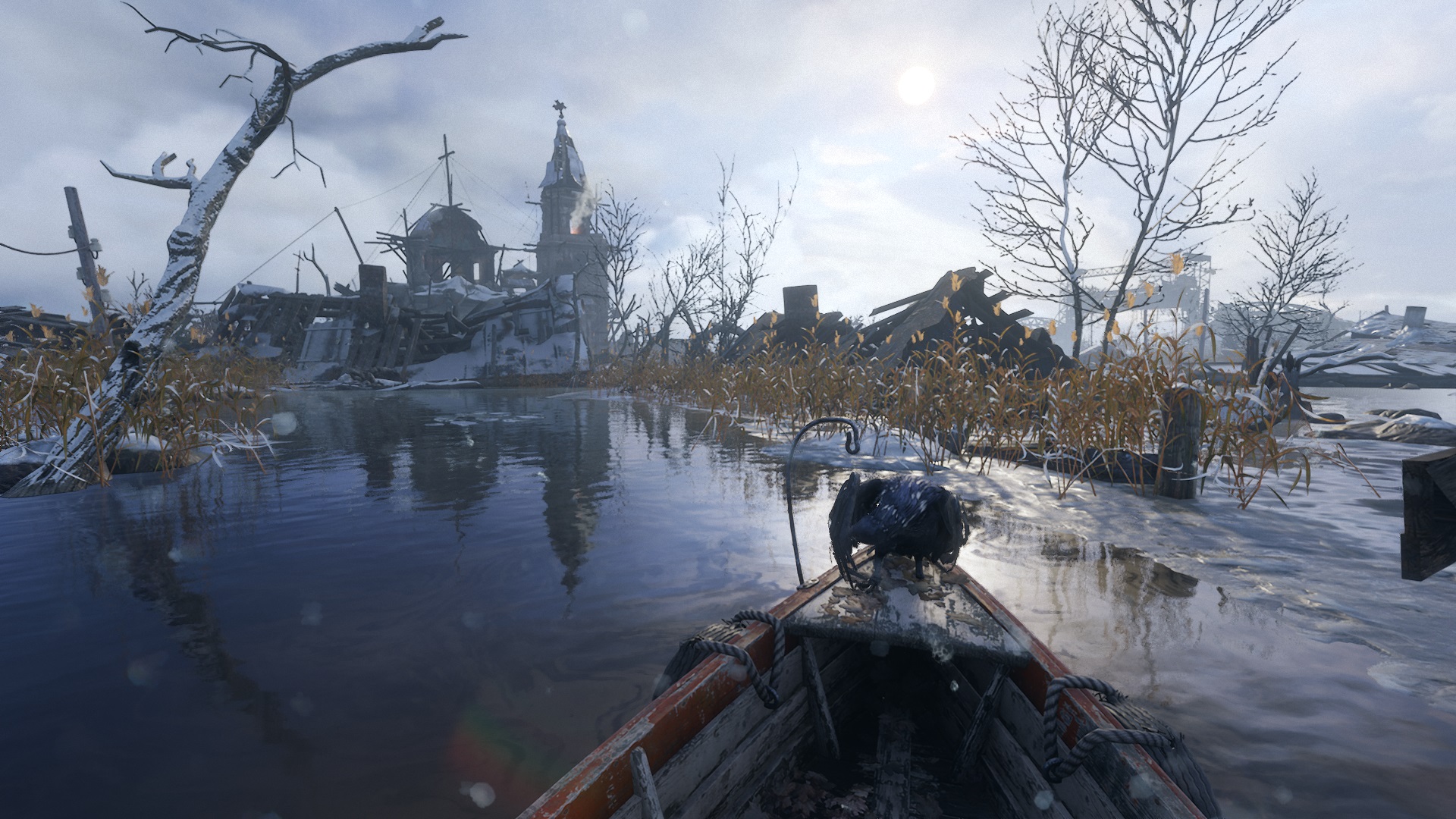
This blend of hair-trigger stealth and fearsome combat is nothing new for the Metro series, but hitherto its high-drama has always been tightly controlled by the game. With Exodus, 4A Games also lets players create their own survival stories in what is the biggest and most dynamic entry in the series to date.
Set a year after the events of Last Light, Exodus begins with protagonist Artyom scanning the Russian radio frequencies as he searches for signs of life outside the Moscow Metro. Unable to believe Moscow is the only place on Earth where humanity has survived, he desires to leave the city and search for other signs of civilisation. But he’s prohibited from doing so by Commander Miller, who is both Artyom’s stepfather and superior in the Order.
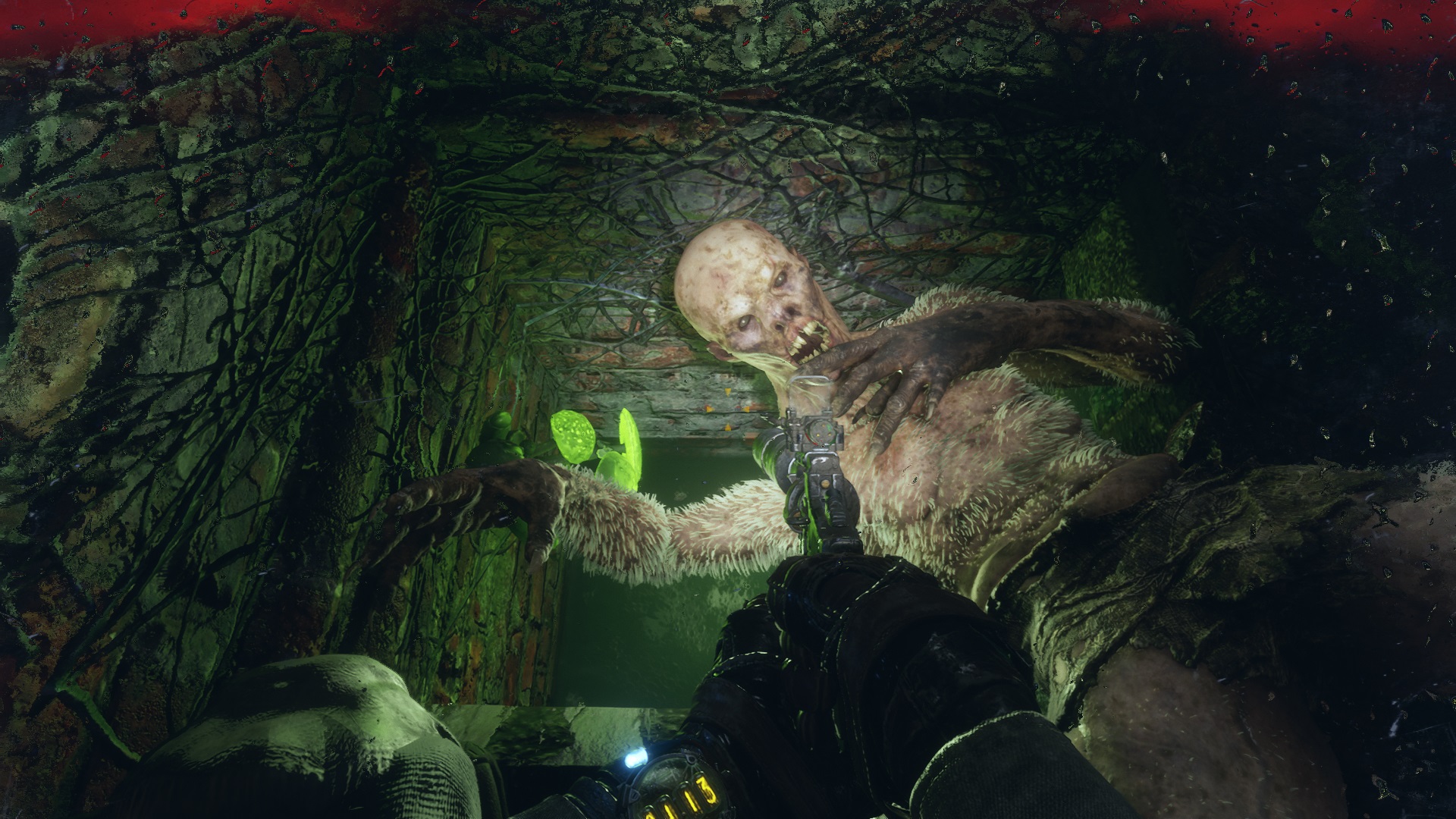
Eventually, however, the Order’s hand is forced after what basically amounts to a colossal misunderstanding with another of the Metro’s factions. A startling series of revelations follows, culminating in Artyom, Miller, and several other members of the Order (including Artyom’s wife Anna) becoming pariahs. Exiled from the Metro, they must seek out a new place to live on a stolen steam train named the Aurora.
It’s an enjoyably chaotic introduction, one that provides a taste of classic Metro play before introducing you to its newer structure. The rest of the game involves Artyom and his crew searching for a new home while dealing with the many different kinds of people they encounter along the way. This breaks down into four very large levels, two of which you can explore with almost complete freedom.
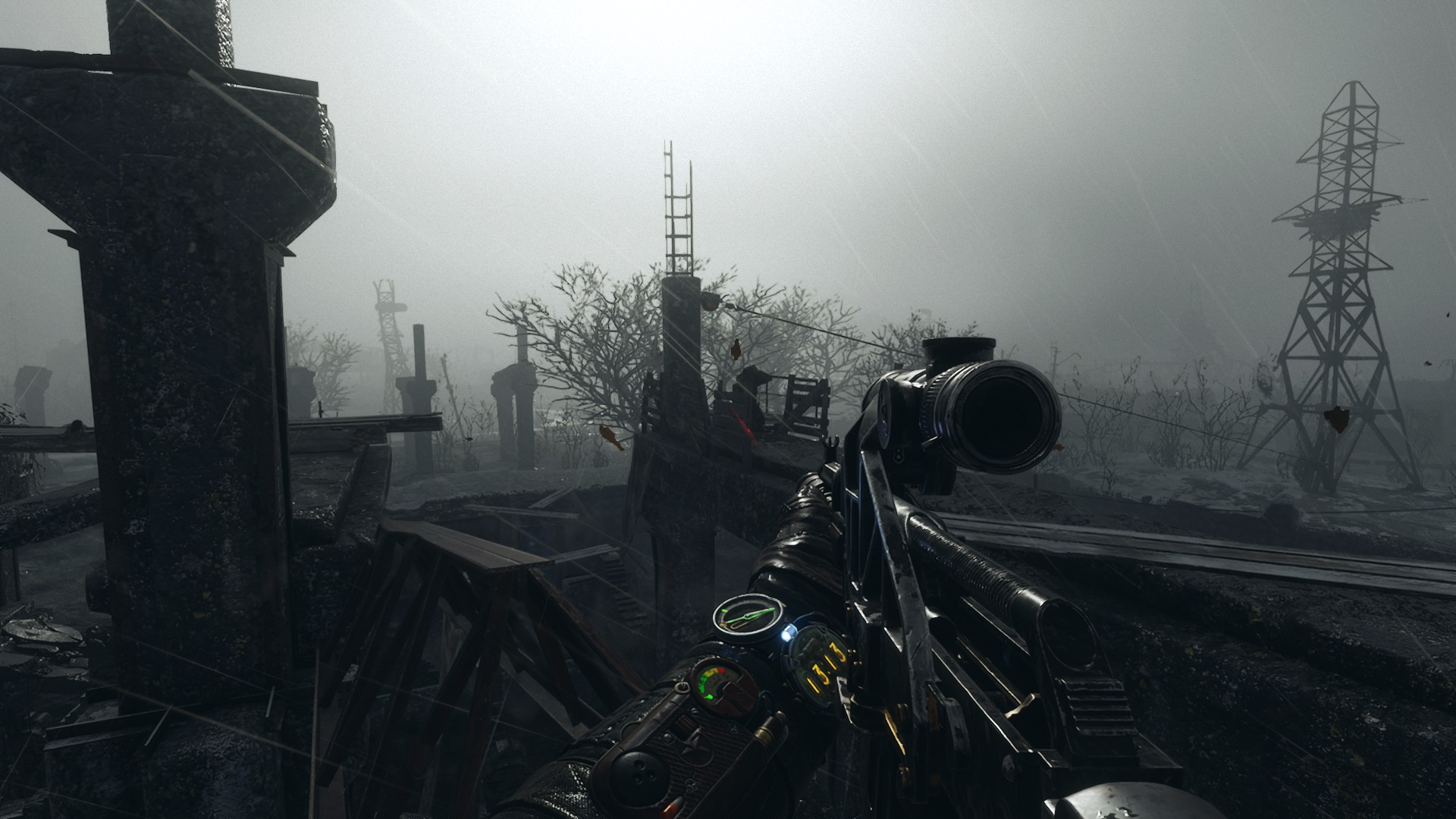
The Metro games have always delighted in providing incredibly detailed environments and an atmosphere you can steep in, but up until now those environments have primarily been underground tunnels and nuclear bunkers. Exodus, however, lets us see what 4A can do with much broader horizons, and the results are quite astonishing. As well as the familiar ice and snow of Russian winter, you’ll also explore a searing desert battered by dust storms, and a verdant forest valley overlooked by a towering concrete dam.
The level of immersion in these places is truly remarkable. As you explore, the game is often quiet but never silent, communicating the ambience of each environment brilliantly. From the gentle snow and whistling wind that rattles around the Volga to the heat-haze that blurs your vision as you explore the desert. These environments also change over time. Nightfall brings fewer bandit patrols but more mutant activity, while those aforementioned storms don’t simply appear from nowhere. They loom on the horizon as towers of black cloud, rolling across the sky like actual weather systems. When they hit, they completely change the feel of the game, choking you with dust or battering you with rain, dramatically reducing your line of sight and turning enemies into silhouettes barely visible in the chaos.

As an open-world game, Metro isn’t particularly innovative, but it is pleasingly balanced. The environments are just large enough to make you feel like you’re exploring, while the game’s survival systems are just complex enough to keep you engaged without interrupting the game’s forward momentum. There are bandit camps to clear and mutant lairs to investigate, while you’ll occasionally stumble upon quirky characters like an old hermit who lives in a spider-infested shipwreck, or a group of religious fanatics trying to “exorcise” an electrical anomaly. My only issue is the gas mask is a little under-utilised. On normal difficulty at least, I never felt like I was close to running out of filters.
The addition of more open environments is an unmitigated success, but perhaps more importantly it doesn’t overwhelm or replace the elements that originally made Metro so engaging. Combat, for example, is the best it has ever been. It’s both slicker and more responsive than the previous games while retaining the sense of weight and impact that makes Metro’s gunfights so distinctive. Weapon customisation has also been greatly expanded, letting you build all manner of bizarrely ad-hoc guns.
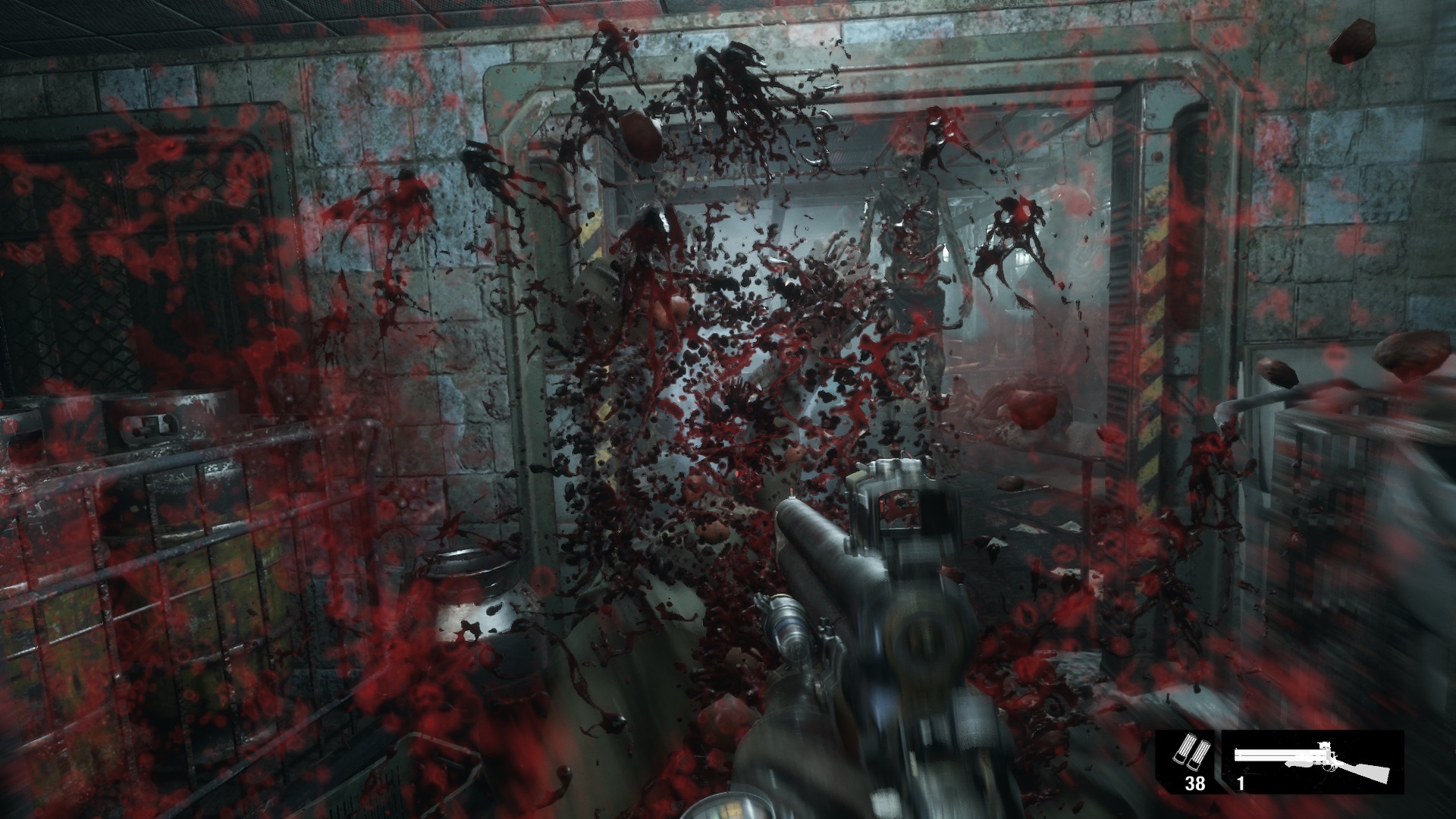
There are also plenty of set-levels embedded within those open environments, which range from trying to recover a railcar from a train depot infested with mutants to a daring raid on a slaver’s water supply in the Caspian. These missions can be completed either through combat or by non-lethal stealth, although the latter option is very difficult to pull off unless you ensure you attack at night. Indeed, stealth still feels very basic, and I wish 4A would either commit to making it a proper system or just cut it out entirely.
Alongside the combat, Exodus also retains Metro’s strong narrative drive. In many ways it’s the best story of the series, partly thanks to how the Aurora’s function as a mobile home enables a more consistent cast of characters. As your train slowly makes its way across Russia you get to know your crew intimately. You listen to their stories, watch them evolve, make friends, and even get married. It can be a bit over-indulgent. The script is often heartwarmingly earnest but can also be clumsy and unsubtle. That said, it’s rare that a shooter dedicates so much time to engendering a sense of family between its characters, and Exodus deserves commendation for that.
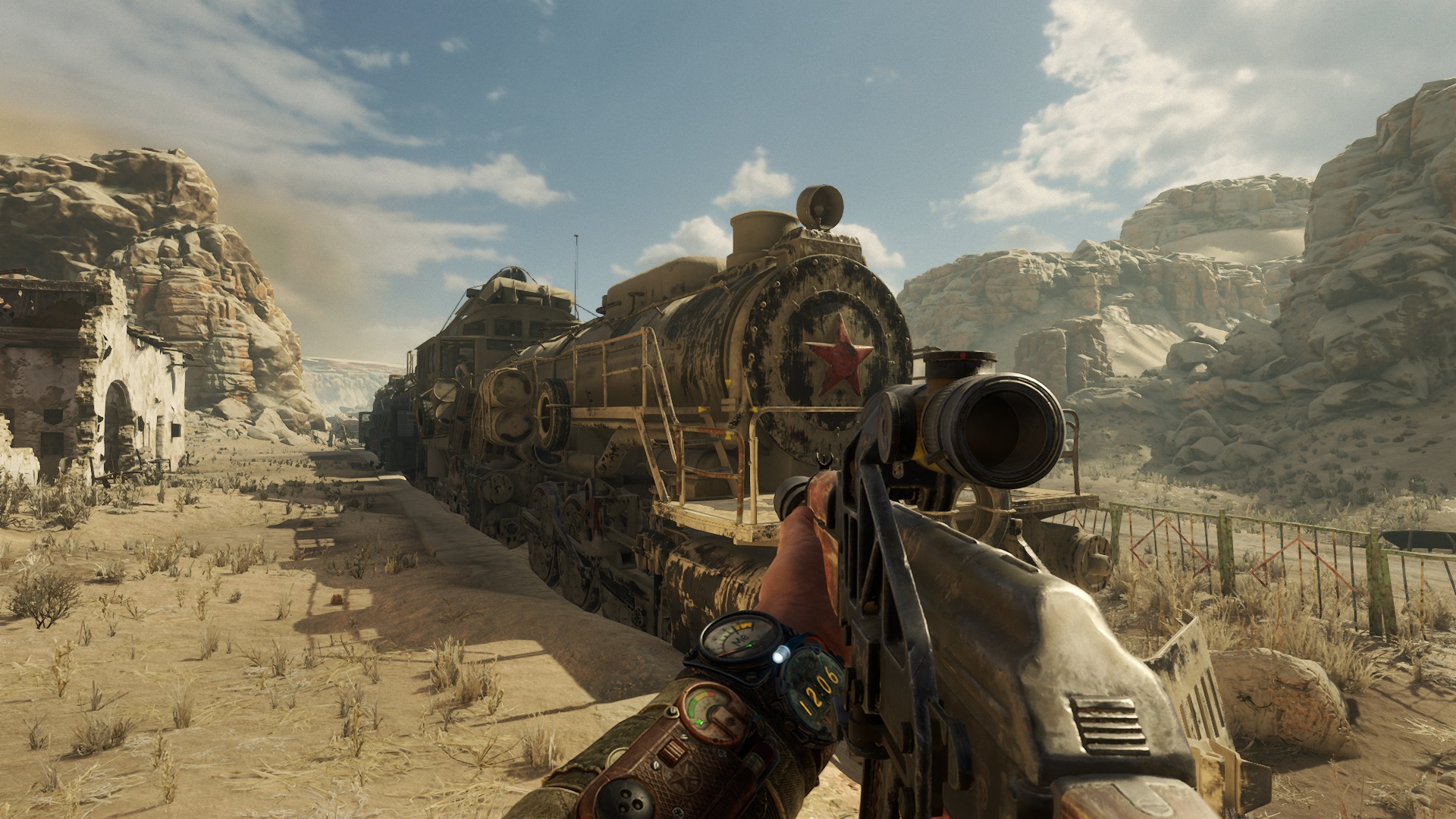
I do have one big problem with Metro’s story, however, and that’s the representation of Anna, Artyom’s wife. Now, 4A has clearly worked hard to make Anna seem like a believable character. In fact, it's done a lot to improve the series’ representation of female characters as a whole, with several well-drawn women occupying prominent roles in the story.
For the first third of the game Anna is one of these. She makes a wonderful companion, sort of like a Russian Alyx Vance, who also happens to be an eagle-eyed sniper. And through her working closely with Artyom, they sell the relationship really well. Unfortunately, at some point Exodus removes Anna from your side and turns her into an object that needs to be rescued. It would be fine if the game did it once or twice. But it does this at least four or five times, and each time it makes Anna seem more incompetent than she is. The script also frequently paints her in a weirdly infantile way, constantly referring to her like she’s a troublesome three-year-old. Yes, she’s Miller’s daughter, but she can also shoot a bullet through a man’s eye from a mile away. She doesn’t exactly need to be wrapped in cotton wool.
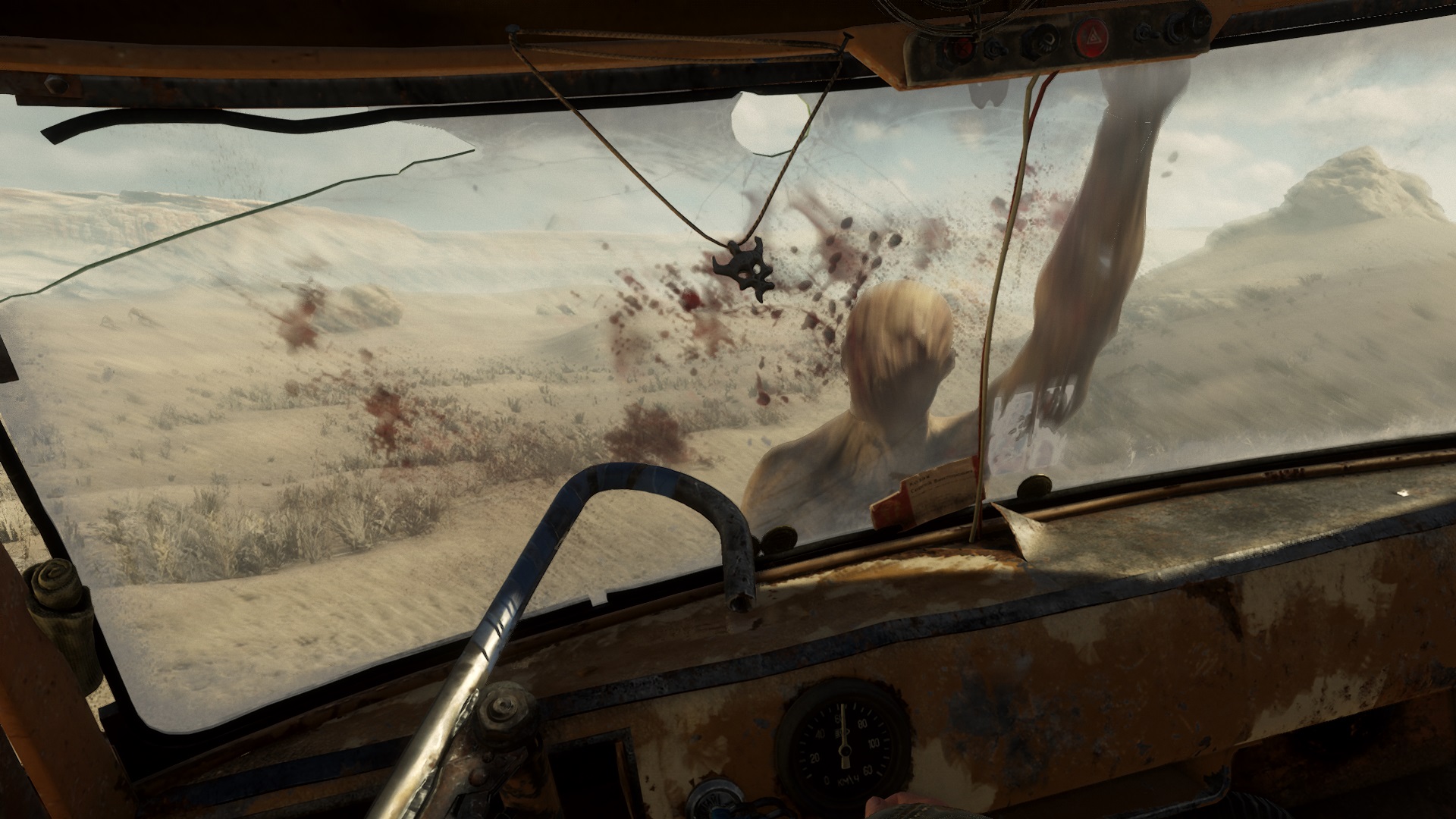
I don’t think this is malicious on 4A’s part. The game just seems to think the best way to make you feel for Anna is to put her in peril, when actually the relationship is much more believable when she’s helping you achieve your goals, covering you from some lofty elevation or just generally kicking ass next to you. One of my favourite lines in the game comes during a crucial fight, when Anna coolly crackles across the radio, 'Artyom, your head is in the way.' Yes, more of that Anna, please.
Another lesser issue is that the ability to explore tails off in the game’s second half as the story begins to race toward its conclusion. I would have liked a little more room to explore some of these places, particularly the river Taiga, which has a fantastic subplot that doesn’t quite get the love it deserves. That being said, Exodus counterbalances this with some stunning set-pieces, while the final chapter is one giant, classic Metro level that is probably the best extended set-piece I’ve played since Titanfall 2. I don’t want to say too much about it, because spoilers abound, but the whole thing is weird and scary and sad and tense and utterly, utterly thrilling.
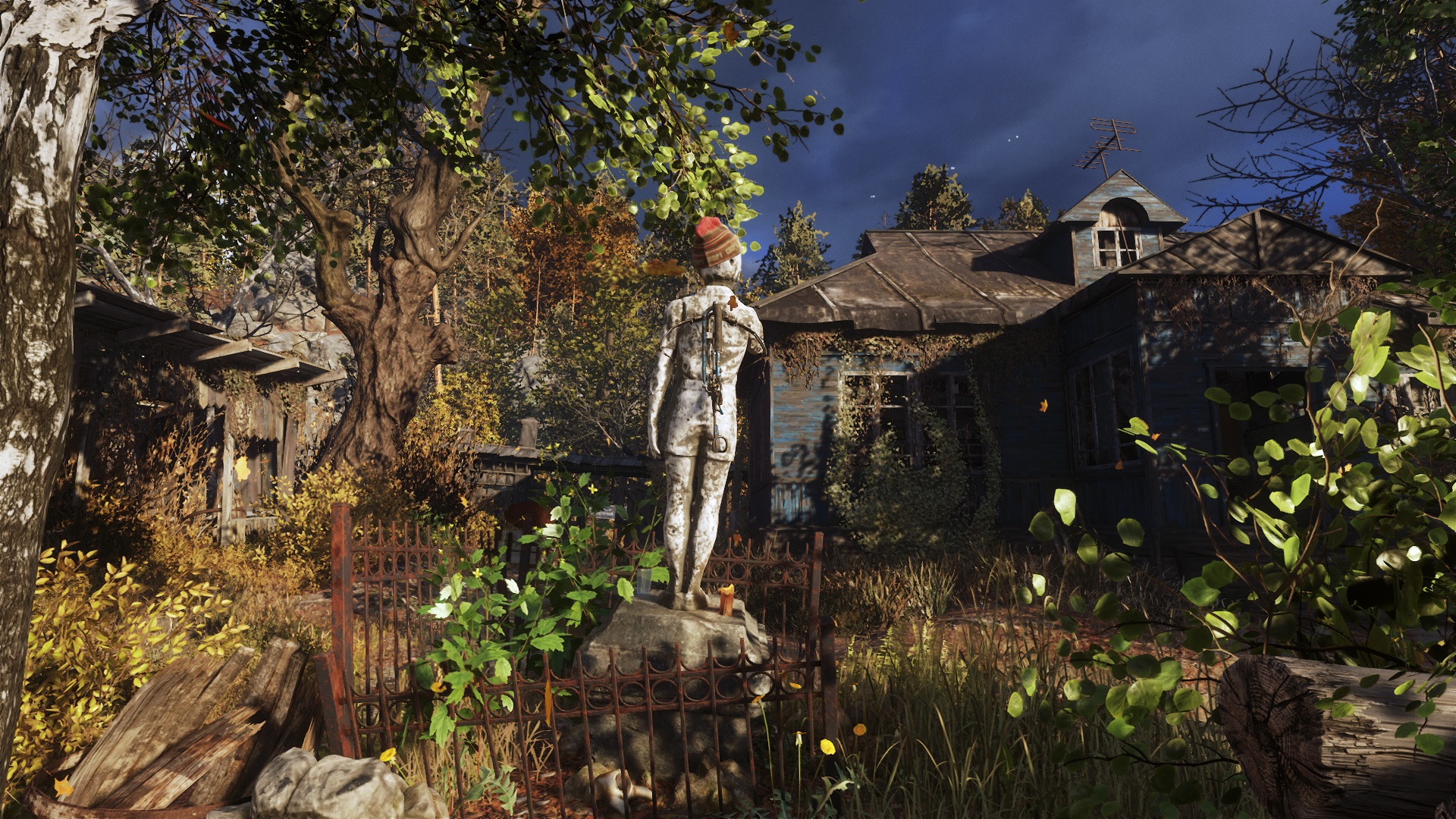
Narrative hiccups aside, Metro Exodus is great, a hugely enjoyable adventure that manages to balance dynamic survival with a strong narrative drive and throws in some cracking gunfights to boot. It delivers almost exactly what I hoped for, and surprised me here and there as well. Thoroughly recommended.
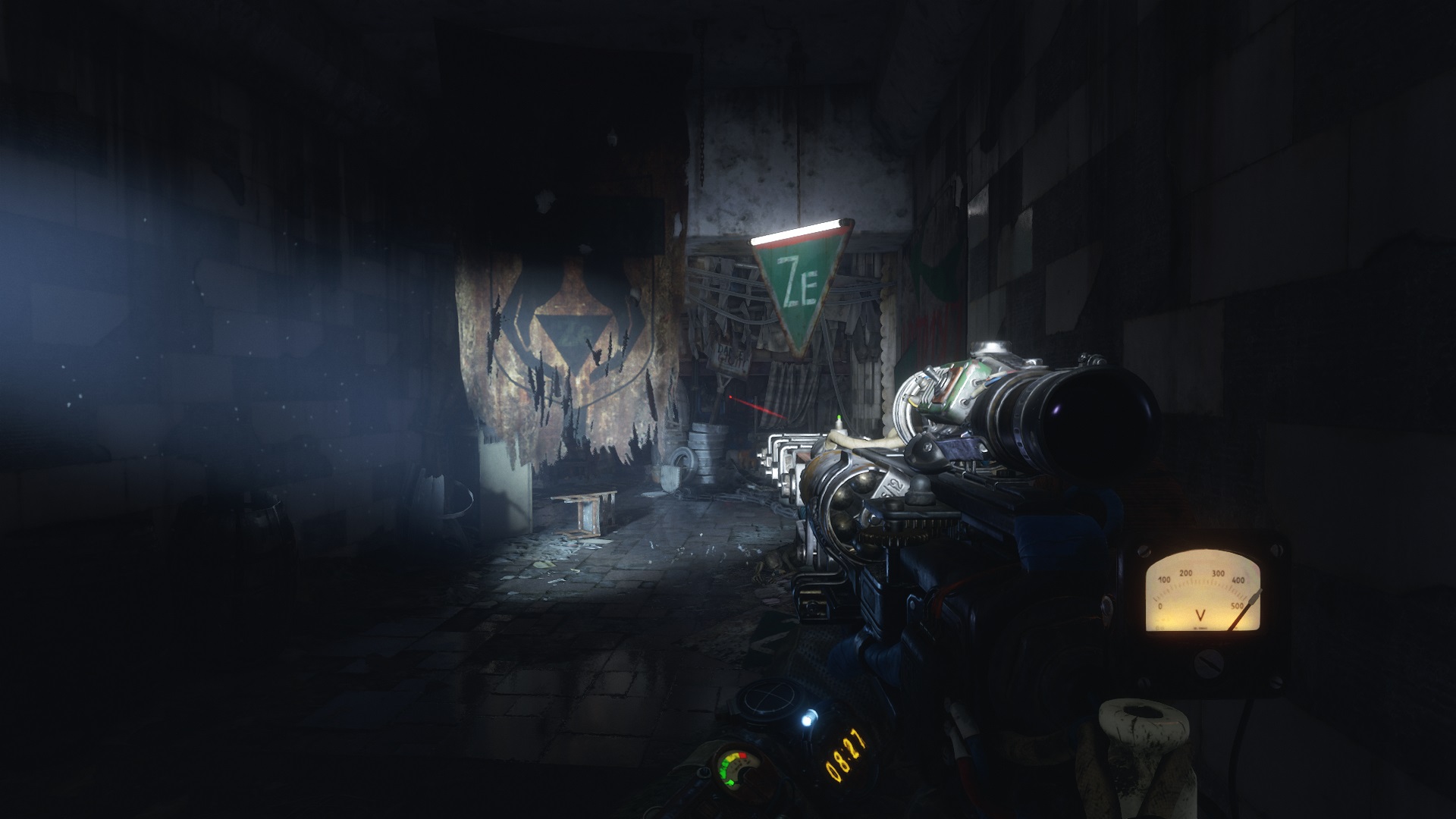


MSI MPG Velox 100R Chassis Review
October 14 2021 | 15:04









Want to comment? Please log in.